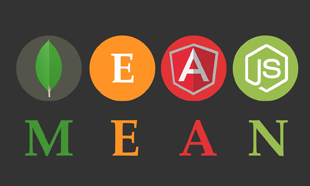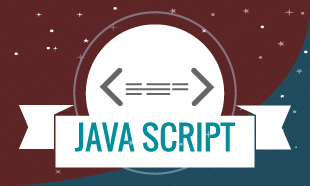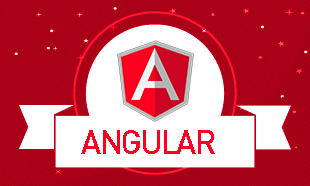Advanced Course in MEAN Stack Developer
Get a Call
INTRODUCTION OF Advanced Course in MEAN Stack Developer
This course is meant for anyone who wants to start building full-stack JavaScript applications in Node.js, AngularJS, ExpressJS, and MongoDB mean stack web. It starts with the basic concepts of each technology, so the user’s experienced in a particular area will be able to speed through these sections Help of web Development. This course assumes you have some JavaScript knowledge, and does not teach JavaScript itself. know About Advanced Course in MEAN Stack Developer
OBJECTIVE
The overall objective of the course is to enable to you confidently build all different types of applications using the MEAN stack. The course is divided into four sections, each section focusing on a different goal. The four sections all work together building a full application, with an overall outcome of showing how to architect and build complete MEAN applications.
Course Outline Advanced Course in MEAN Stack Developer
Introduction
- What is SPA?
- Why Node along with Angular?
- Single Page Apps vs Conventional Web Applications
- Anatomy of Angular 2/4/5 Application
- Angular JS Environment Set-up
➢NodeJS Setup
➢ IDE set-up (VS-Code)
➢ Angular-CLI Introduction & Set-up
➢ Bootstrap intro & set-up - The architecture of Angular JS
- Structure of Angular Js Application
Type-Script
- Brief Intro to TypeScript
- Why Use TypeScript
- Getting Setup in VS-Code
- Data Types in Type Scripts
- Function, Fat Arrow Functions
- var, Let, const
- Debugging
- TypeScript Decision Making and Loops Maps
- TypeScript Class, Interface, Objects, Namespace and Modules
- TypeScript Generics
Introduction to Component
- What is Component?
- Creating Component class
- Metadata with Decorator
- Importing Modules
- Creating an App Component
- Angular Bootstrapping process
- Single Page Application Intro
Template, Interpolation and Directives
- Introduction
- Building a Template
- In-lined And External Templates
- Building a Component
- Using Component as a Directive
- Binding with Interpolation
- Styling Template
- Creating and Displaying Data for Component
- Directives (Built-in i.e *ngIf, *ngFor etc. and Custom) – Create and use Custom directive.
Binding and Pipes
- Types of Angular Binding (One-Way, Two-Way, Event Binding etc. etc.)
- Event Handling
- Transforming Data Using Built-in Pipes
- Creating Custom Pipes
More on Component (Best practices)
- Strong Typing & Interfaces
- Encapsulating Styles
- Life-cycle hooks of component
- Relative Path and Module Id – Code
- Debugging Techniques
- Building Nested Components
- what is Nested Components
- Communication among the Nested Components
- @Input, @Output
- Passing Data to a Component
- Passing Data from a Component
Services and Dependency Injection
- Angular Service Introduction
- Building a Service
- Dependency Injection in Angular
- Injecting a service
- Displaying data from Service
Consuming server-side (JSON) data Using HTTP
- Client-Server Architecture Discussion
- Retrieving Data using HTTP
- Get Data from another domain
- Observable and RxJS (Reactive Extension Concept)
- Promise vs Observable
- Exception Handling
Navigation and Routing Basics
- Routing Concepts
- Routing Configuration
- Routes to Acting Tying
- Passing Parameters to Route
Navigation Routing Advanced Techniques
- Routes Protection and its Requirement in Web App
- Types of Guards
- Building Guard
- Registering a Guard
- Implementing Guard in Parametric Routes
Forms
- Controls
- Control groups
- Template-driven Forms
- Reactive Forms
Highlights
- This course covers the features of various versions of Angular
- This course will also cover a project.
Pre-requisites: Having knowledge of HTML would be required
Introduction
- What is Node.js
- What is NPM
- Software Installation
- The architecture of Node Server
- Client-side JS Vs Server-side JS
- MEAN Vs LAMP
- Execute “Hello World” program using Node
Foundation
- Global Objects
- System Define Constants
- Scopes in JavaScript
- Function
- Regular function
- Anonymous function
- Function Expression
- Hoisting
- Import modules
- Export modules
- Arrow operator
- User Inputs from terminal
- Conditional statements
- Event-driven programming
- Class & Object
- Inheritance in JS
- Array of object
- Attaching custom events with objects
Asynchronous programming
- Asynchronous basics
- Callback functions
- Callback hell
- Promises
- File I/O
- Access System resources
- Directories
Building an HTTP Server
- The HTTP Protocol
- Building an HTTP Server
- Rendering a response
- Processing query strings
- Processing posted data
Buffer, Streams & Events
- Using Buffers for Binary data
- Flowing vs. non-flowing streams
- Streaming I/O from files & other sources
- Processing streams asynchronously
Multi-Processing in Node.js
- Working with Child Process API
- Working with cluster API for multi-core servers
Express JS Framework
- The model-view-controller pattern
- Defining ejs/jade template
- Configuring express
- POSTMAN
- Using REST
- JSON Data
- Reading POST Data
- CRUD Operations
- Adding Middleware
Express JS with Mongo /RDBMS
- How node.js connects to the database
- RDBMS vs NoSQL
- CRUD operations
Socket.io & a chat app
- Getting started
- Adding socket.io to your app
- Exploring the front end
- Sending Live data Back & Forth
- Creating the Front End UI
- Showing messages in App
- Working with Time
- Timestamps
- Show message time in chat App
- Chat application Project
Build Management
- js
- js
Unit Testing
- Mocha
- js
Highlights
- This course covers complete details of Node, Express with MongoDB
- This course will also cover projects.
- This course will cover the concept of Unit testing and Build management.
Course Outcome
- By the end of section one, you will be able to set up a web-server using Node.js and Express, to listen for requests and return responses. When you have finished with all sections you will able to add authentication to the MEAN stack, enabling users to log in and manage sessions.
SOFTWARE/ PROGRAMMING LANGUAGE COVERED
- Node.JS, Express.JS and MongoDB
LIVE PROJECT
User Management System/ Online Ticket Booking System
CAREER OPTIONS AFTER COURSE
Students who complete this course have the following career options
- Web Developer
- Advanced Course in MEAN Stack Developer

[cp_popup display=”inline” style_id=”9095″ step_id = “1”][/cp_popup]
WHY TGC?
TGC India is a leading Web Design and development institute in Delhi with branches across the country. Among the numerous high-level courses, it offers is the MEAN stack course. It provides an educational environment that houses both local and foreign students who share ideas to develop their visual communication skills and learning mean stack. It boasts of well trained and highly experienced staff who are both friendly and courteous and ready to train using Live projects and the interactive learning system whose benefits outweigh online tutorials or self-help books.
Similar Courses
Upcoming Batches:
Course Reviews
No Reviews found for this course.










0 Responses on Advanced Course in MEAN Stack Developer"